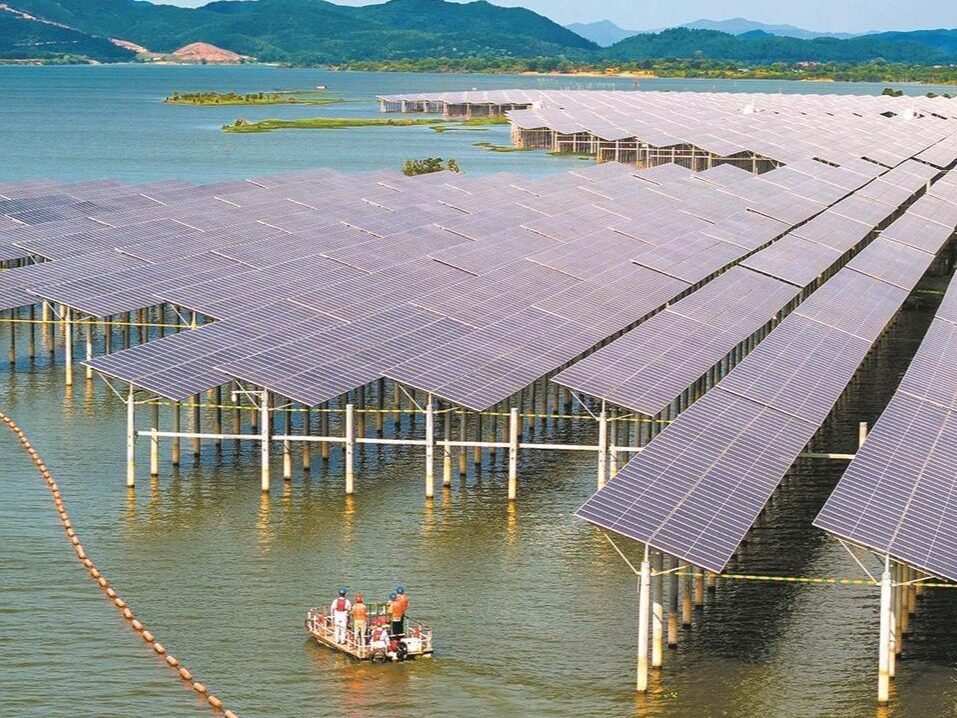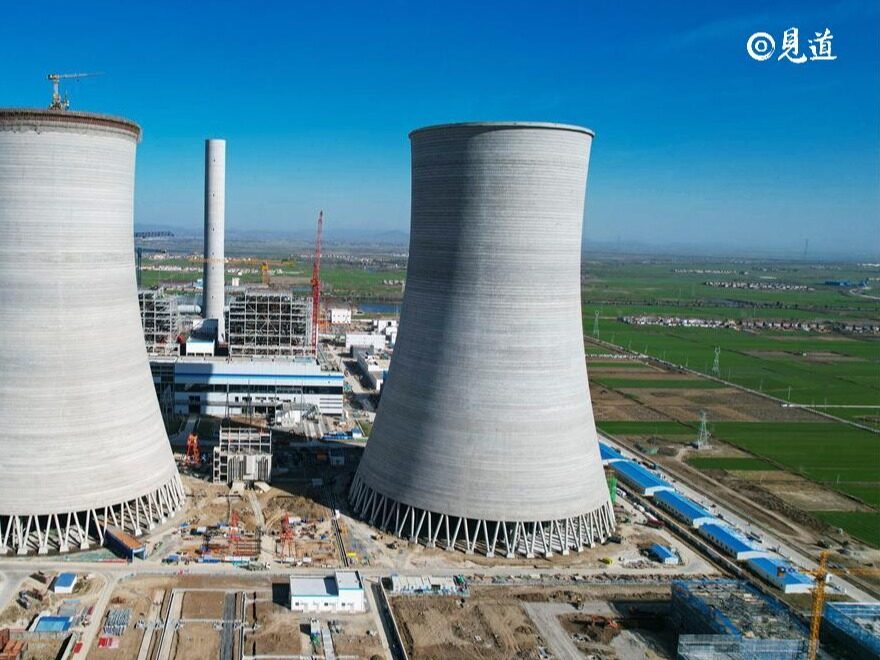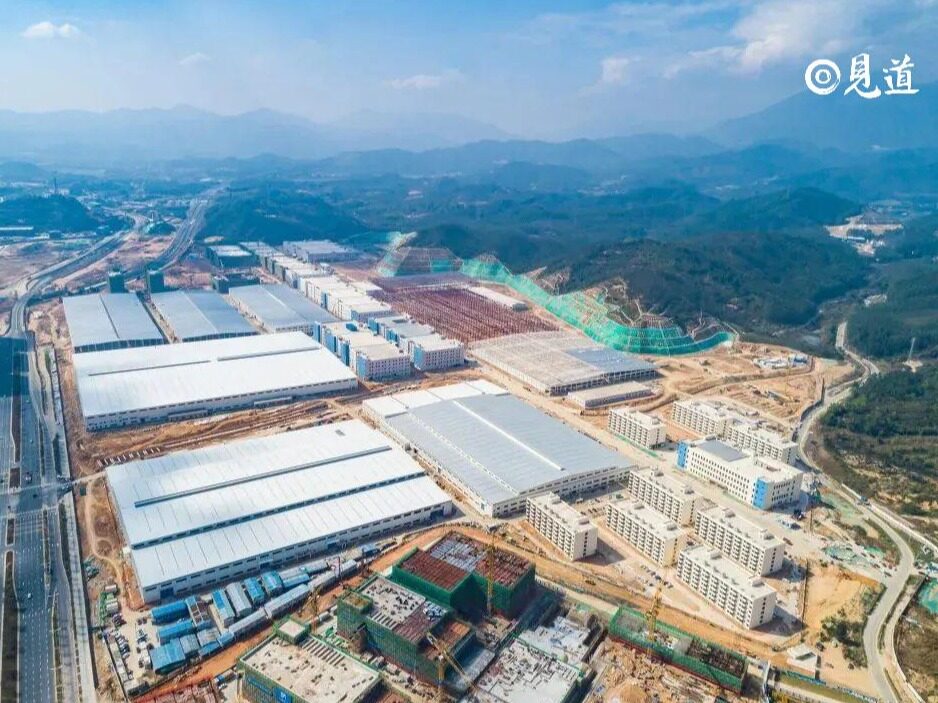- Volvo Construction Equipment has a strong foothold in China, thanks in part to its joint venture SDLG

An old saying goes well: the harder you work, the luckier you will be. In an hour-long conversation with Melker Jernberg, President of Volvo Construction Equipment Corporation (Volvo CE), he talked about the subject of luck many times. It can be said that during the Covid-19 period, the construction industry is much luckier than many industries, because the construction industry is mostly regarded by the government as a “necessity” and the work continues.
In 2020, sales of construction equipment in most parts of the world are declining, with the exception of China, where sales increased by double digits. Volvo Construction Equipment has a strong foothold in China, thanks in part to its joint venture SDLG, and benefit from China's strong economic performance.
The good performance of the Chinese market has provided a huge boost to the company's sales data in 2020, but of course, the company's strong performance in China is not solely based on luck. Just as within five years, sales of electrical construction equipment have increased significantly-considering their focus on electricity, this will benefit Volvo Construction Equipment. However, lay the foundation today to reap the rewards tomorrow. The harder, the more fortunate.
Global construction sales
Speaking of the global situation of Covid-19, Jernberg said: "You can see many different businesses around us that have been severely affected, especially in the second and third quarters of 2020. Of course, we can go where we are today. One step is not just by luck. We have such customers, such distributors, and such products are not by luck. We are fortunate that the industry we are in is always improving. But if you turn these into results, I I am very proud of having such an organization because we have done a lot of work."
Faced with the current global situation, the company's financial performance in 2020 is still very strong. Sales in Europe and North America fell sharply in the first half of the year, but recovered to some extent in the second half of the year. Then there is China.
In 2020, China will account for more than one-third of global construction equipment sales. There is a view that this number is too high for the healthy development of the industry, and it is dangerous to rely so much on one country. In the past, after strong sales in China, there was often a severe decline. What does Jernberg think about this?
"When it comes to China, you can think of 2010, 2011 and 2012 as a volume bubble and say that we are facing the same risks now. Then, of course, everyone is thinking about this and being as careful as possible. But on the other hand, I think that compared with China in 2010, China in 2020 is not what it used to be in terms of business maturity, credit risk, handling customer behavior, and society as a whole. Maybe I will regret it, but China today The system is more stable."
Volvo Construction Equipment Corporation (Volvo CE) and SDLG have a joint venture in China that has been in operation for ten years. At the Bauma China event in December 2020, the two companies established a joint booth. Although the industry has questions about whether the product lines of the two companies are beginning to overlap, Jernberg called the joint venture "great" and said the company has a strong position in the field of wheel loaders and excavators in China.

Volvo Construction Equipment and SDLG cooperate in China
He added: "Obviously, the partnership has promoted our success. This is cooperation. Of course, part of the reason for SDLG's success is that everyone knows that they have a good cooperation with Volvo. As we all know, Volvo has also achieved partial success in China. Because we have a good relationship with SDLG. I think we are back in a lucky state and we have this joint venture. So far, this is obviously a win-win."
Electric construction equipment
Many OEMs in the construction industry are either looking for prototypes of electric equipment or have developed motors that can be used in mass production. Volvo Construction Equipment Company (Volvo CE) is one of the leading OEMs in this field, with ambitious goals for electric equipment. By 2030, the Volvo Group’s goal is to turn 35% of the equipment sold into electric equipment. This means that the company pursues progress and has a long-term goal.
"If we want to achieve our ultimate goal in 2050, we must achieve a certain phased goal in 2040. According to our calculations, this means that we already have 20%, 30%, 35% of vehicles and equipment that are electrified. . And our 35% share is quite large. Then we need to have some transaction volume in 2029, 2028 and 2027. Then you just need to do the calculations and you will realize that this is rushed, but also very interesting because it is So worth it."
The company is producing electric compact excavators and wheel loaders, but has stopped developing new diesel versions. Volvo Construction Equipment is known for large construction equipment rather than compact equipment, so from a business perspective, it makes sense to increase sales in non-traditional superior areas. There is no doubt that Jernberg is passionate about this issue.
He said: "We have a great responsibility for the footprint we leave, and we also have the opportunity to make ourselves more sustainable. Overall, this is a major driving force for Volvo CE's transformation. Of course, part of it is electrified. machine.

Volvo Construction Equipment has invested in compact electric excavators and wheel loaders
“It’s easy to make a slideshow with the communications department and send it out and say'this is great', but it’s actually changing a company. We have high ambitions for Volvo CE and the Volvo Group."
Electricity is part of the "alternative energy", and other options such as hydrogen and synthetic fuels, just as alternative electricity is only one aspect of the new technology, the new technology also includes new mapping tools such as automation, BIM and drones.
New technology and innovation
Jernberg admits that the construction industry is “not the fastest” in developing and adopting new technologies. But he said that it is wrong to think that people in the construction industry do not like innovation. He commented that this has more to do with the industry that manufactures machines, which must work under harsh conditions for a long time. He said that the construction industry is "a down-to-earth industry, down-to-earth people, and down-to-earth companies."
However, new technologies are being accepted and integrated by more and more people. At the end of 2019, Volvo created an independent automation business unit-Volvo Automation Solutions. Volvo Group and Daimler jointly established a fuel cell development company. Volvo Construction Equipment Company (Volvo CE) also cooperated with Finland's Norrhydro to develop a digital hydraulic actuator that can increase productivity in construction applications while reducing fuel costs and carbon dioxide emissions.
In the latter part of the interview, when I asked Jernberg about the company's plans to increase its product range (perhaps a bulldozer?), he gave a smooth and diligent answer without revealing much information, and then returned to Volvo and Dai Muller’s cooperation and its importance. He is right to emphasize this; although the product range of OEMs will always be crucial, the development of new technological solutions (such as fuel cells or machine hydraulics) with partners and companies will allow them to stand out from their competitors and improve The key to efficiency.
Construction in 2021 and beyond
The impact of Covid-19 on businesses has been well documented, but Jernberg spoke passionately about its impact on people’s mental health. He also introduced us to his management style. He said: "In my opinion, the development of a company is mainly through self-learning by interacting with people, obtaining information, and understanding the market.
"You have to understand customers and product needs. If customers say,'I don't care about digitalization, I only need cheaper spare parts', you will learn from it.'Working life is a learning process and you can participate in your All decisions made, whether it be electrification, restructuring, purchasing a new product line or participating in an event."

Jernberg sitting in a Volvo CE electric excavator
He mentioned that these interactions can be done online, but the facts are not exactly the same. I hope that in 2021 we can resume normal social activities, and Jainberg is optimistic about the coming year. Looking to the long-term goals, he again mentioned that the company's goal is to produce 35% of electrical equipment by 2030, and he is excited that the new technology will enable them to interact, support dealers and communicate with customers.
"The harder you work, the luckier" this sentence is believed to be said by golfer Gary Player, but there are also versions saying that it comes from Ingemar Stenmark, a former World Cup alpine skier from Sweden. Volvo CE is clearly working hard to build modules, which will make them "lucky" in the future. Editor/Dong Xiyuan
Comment
 Praise
Praise
 Collect
Collect
 Comment
Comment
 Search
Search














Write something~